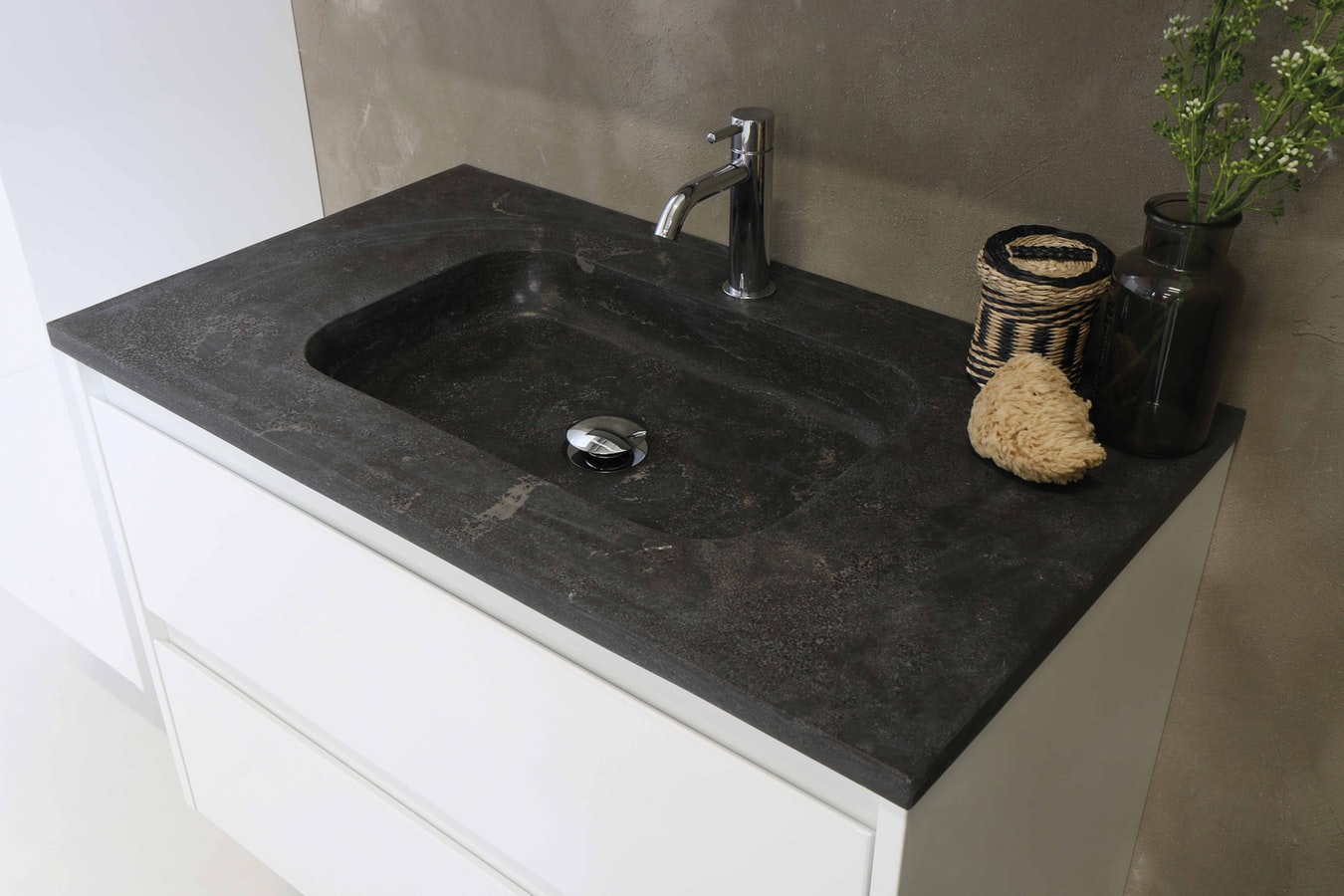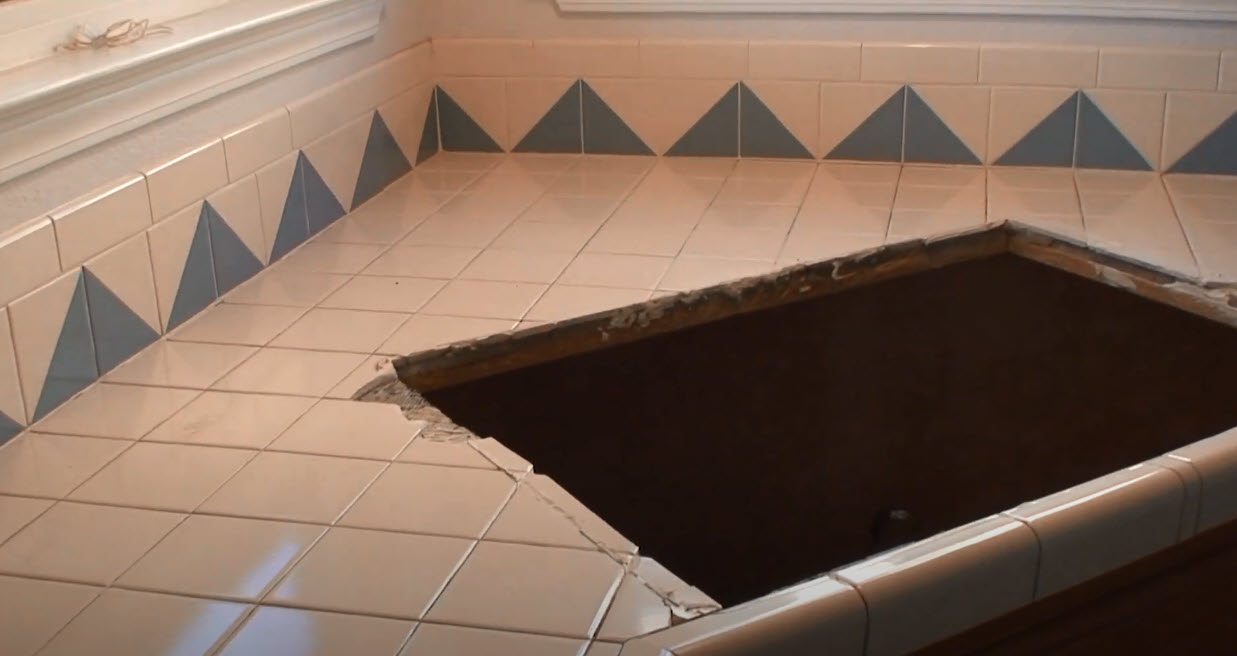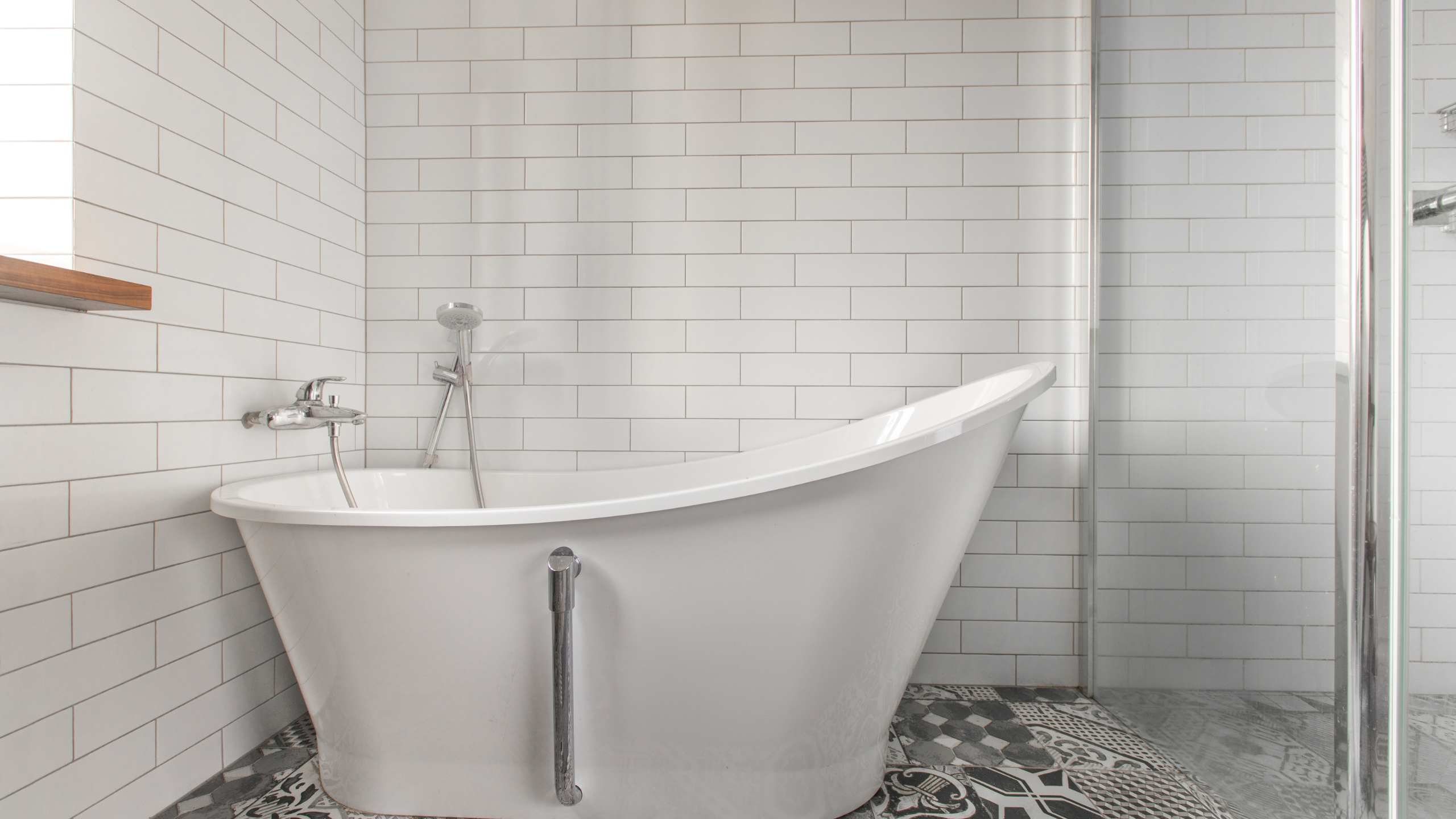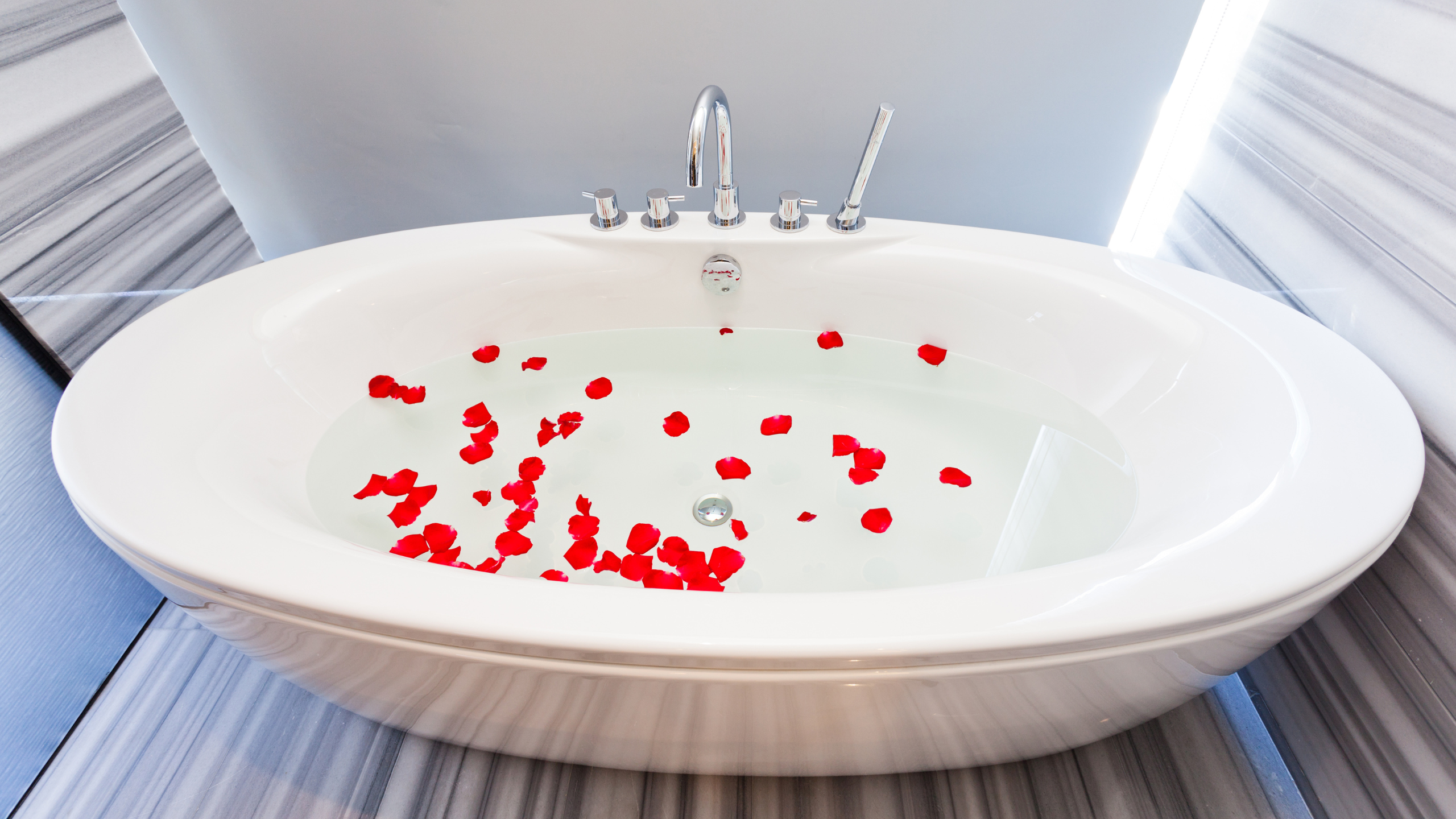Although bathroom countertops are not usually subjected to much use and abuse, over time, it would inevitably get countertop cracks or chipped. When this happens, the first thing you have to do is to diagnose what caused such damage and avoid doing it repeatedly.
This information is vital in determining which type of materials are required to get the job done appropriately. Only then you can begin the process of your countertop cracks repair.
Is it a Fissure or a Crack?
The first thing you’re gonna wanna do is to examine the countertop damage and determine whether it is a fissure or a crack to know its cause.
Fissures are naturally occurring in many types of stones used in countertops. This term is used in the stone industry to describe a visible separation along the crystalline boundaries that naturally occur in the stone.
Oftentimes, a fissure does not necessarily go through the entire depth of the stone and it is very narrow. For reference, it is so narrow that you can’t push a key into it. Fissures can appear straight, although keep in mind that they occur naturally along the natural crystalline structure of the stone, meaning these are not induced by installation. Lastly, fissures often occur in more than one place.
On the other hand, cracks result from stresses from handling, fabrication, transport, or installation. Usually, cracks go through the entire depth of the stone more commonly than fissures. It is also potentially wide enough to insert the tip of the key.
Note that cracks are often localized in or around areas of stress such as where the countertop opens up for the sink. It also tends to show up on and around supports. Cracks also typically follow a more or less straight line.
Another way to tell if it is a fissure or a crack is to run your fingernail or a car key across it. If it is smooth, it is more likely a fissure. Meanwhile, if it is rough and it catches your nail or car key, it is most likely a crack.

What Causes Countertop Cracks?
Now that you know the difference between a crack and a fissure, it will be so much easier to find the cause. If it is a fissure, you know that it is naturally occurring. But if you determine that the damage is indeed a crack, it is time to identify what is causing it so that you can remedy it accordingly.
Lack of Integrity or Support
Sometimes, countertop cracks are due to structural integrity reasons. For instance, if there were improper or inadequate supports for the counter upon installation. If that is the case, then the root cause has to be fixed first before repairing the countertop itself.
However, if the cause of the crack is something more superficial, the fix is going to be much simpler.
Hard Blows
Although most materials used in countertop are guaranteed to be durable, hitting it hard with a heavy object can cause a crack, especially if it happens often.
Weight
Just like a hard blow, placing a lot of weight on the countertop could also lead to a crack. Hence, you should be mindful of any excessive weight you place on top of your countertop.
Improper Shimming
It goes without saying but it is extremely important for your countertops to be installed on a level surface. Unfortunately though, many homes, floors, walls and cabinets aren’t always level. If countertops are situated in an unlevel area, this can lead to cracking.
Thus, it is vital to shim areas to ensure that you have a perfect base for your countertop installation.
Extreme Heat
Constant exposure to extreme heat for an extended period can cause cracks to form on your countertop.
How to Repair Countertop Cracks?
Generally, solid surface counters are the easiest to fix. On top of that, the results of the repair are usually less noticeable. You can use color matched adhesives to fill the crack and when sanded down, the crack will be nearly imperceptible.
On the other hand, granite and quartz countertops are a bit trickier to repair on your own because their patterns make the repair areas more conspicuous. For best results, it is advisable to hire professionals to repair it.
They will use a color-matched epoxy to fill the crack, then they will sand it down or polish it to perfection. Depending on their skills and experience, professionals charge anywhere between $200 and $600 for these types of services.
Of all the countertop materials, laminate countertops are the most difficult to repair. Although they are the least likely to crack because of their wood substrate, if they do get damaged, you can fill the seams or gouges with putty and paint it to match the rest of the slab.
Usually, though, most homeowners opt to replace the entire countertop because moisture can seep through the crack and disintegrate the wood substrate over time.
Our Advise:
Use a clear resin, epoxy, or acrylic adhesive to repair small cracks and fissures. We recommend products such as Lamlock Infiltrating Epoxy, LiquiGlass, and Tenax Tefill Kit if you intend to repair the cracks on your own.
LiquiGlass is a fast-setting clear epoxy that dries in one minute into a glass-like material that is very hard and clear. It is also permanent and UV stable. On the other hand, Tenax Tefill kit is a great product that comes in a complete kit with everything you need to fix small holes and chips in stone.
It comes with two viscosities of resin and along with a spray-on catalyst to dry the resin. After spraying the resin with the catalyst and allowing it to dry, take a razor blade and scrape off the excess from the surface. Unlike LiquiGlass, the Tefill Kit is neither a permanent glue nor is it considered UV stable.
Finally, Pectro is a resin based color enhancer that can be used to fill voids, and can help to enhance lighter shades found in cracks and fissures to help them to match the polished surface of the stone.
However, you must keep in mind that these products are for minor repairs only, and should not be used for any structural bonding.
But if you don’t want to repair it yourself, feel free to leave the job to the professionals. JW Toms River Tub Reglazing & Refinishing offers all-around services involving bathroom countertops, tubs, and everything in between. Feel free to contact us at (848) 227-9003 and we will help you with all your repair concerns.
Read more tips here Plumbing 101: How to Caulk Shower and Bathtub Trim




